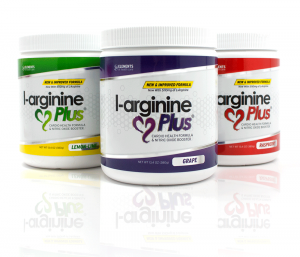Statins help lower cholesterol – but what are the side effects of statins? Are they worth taking if you have high cholesterol? Let’s find out.
Statins are a drug that helps lower cholesterol. They block the enzyme your body needs to make cholesterol in the liver, which can help prevent heart attacks and stroke.
If you have high cholesterol, your doctor may recommend statins. However, this isn’t always the case. Doctors weigh your risk of heart attack, cholesterol levels, and interactions with your current treatments to determine if they’re right for you.
Side Effects
 Some studies suggest that statins can reduce the chances of strokes or heart attacks by 40%. Yet for some people, the side effects are not worth the risk of taking statins.
Some studies suggest that statins can reduce the chances of strokes or heart attacks by 40%. Yet for some people, the side effects are not worth the risk of taking statins.
In a data analysis presented in the Australian Adverse Drug Reaction Bulletin, it was reported that “statin-associated peripheral neuropathy may persist for months or years after [the] withdrawal of the statin.”
Common side effects of statins include headaches, difficulty sleeping, drowsiness, dizziness, flushing of the skin, rashes, and nausea or vomiting. They also include diarrhea, constipation, bloating or gas, abdominal cramping or pain, muscle aches, tenderness, or weakness, and low levels of blood platelets.
Less common side effects include hair loss, nausea, skin problems like acne, and liver inflammation with flu-like symptoms. In addition, you may experience pancreas inflammation and stomach pain, pins and needles sensations, erectile dysfunction, and low sex drive.
Statins can sometimes produce rare and more serious side effects like Myositis, which is inflammation of the muscles. This risk can increase when other medications are taken with statins, such as combining statins with a fibrate.
It can cause elevated levels of CPK, or creatine kinase. CPK is a muscle enzyme and when elevated, it can cause muscle pain, mild inflammation, and muscle weakness.
Additionally, it can cause Rhabdomyolysis, or extreme muscle inflammation and damage. This means that muscles throughout the body become painful and weak.
The damaged muscles release proteins into the blood that accumulate in the kidneys. This can lead to kidney failure or even death; however, keep in mind Rhabdomyolysis is extremely rare.
Benefits
Though there are side effects, if your doctor recommends statins, they will likely benefit your cholesterol in the long run. Below are some benefits of taking statins:
- Reduces your risk of narrow arteries.
- Helps fight inflammation, reducing artery damage.
- Blocks cholesterol from forming in the liver.
- Helps lower triglycerides and increase HDL levels.
- Can help lower LDL cholesterol.
Moreover, statins lower cholesterol levels, which decreases your risk of heart attacks and stroke.
Lowering Cholesterol
 Talk with your doctor to determine if taking statins is right for you. Besides medication, your doctor might also recommend lifestyle changes, like eating healthy foods and light exercise.
Talk with your doctor to determine if taking statins is right for you. Besides medication, your doctor might also recommend lifestyle changes, like eating healthy foods and light exercise.
Supplements can also help your cholesterol. L-arginine Plus is a multi-nutrient powder that comes in three delicious flavors.
It works to increase nitric oxide levels, which helps open up your blood vessels for better circulation, blood pressure, and healthier cholesterol levels. Try L-arginine Plus as a way to promote your cholesterol and blood pressure safely.

